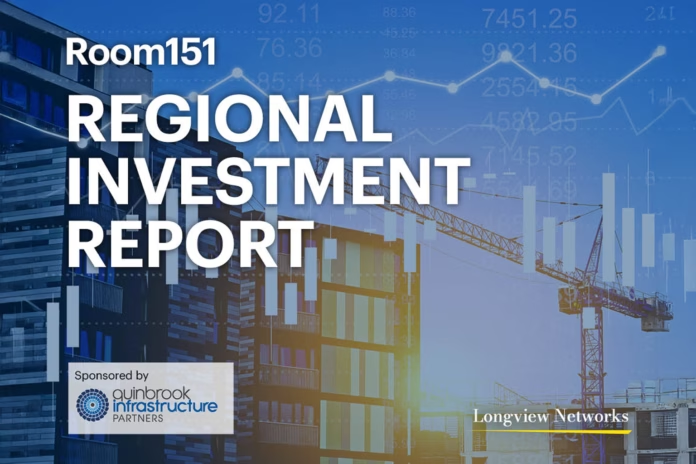
Work is underway to uncover the level of kowledge at the highest levels inside LGPS decision making bodies. Catherine McFadyen discusses what researchers hope to learn.
Expectations of performance in governance and administration have risen significantly for the LGPS in the last five years and funds are working hard to drive the improvements needed to meet these expectations.
In part driven by the Pensions Regulator’s goal to improve standards in all pension schemes, but also driven by an internal quest for excellence, the LGPS is seeking to ensure it can compete with the best worldwide. Key to delivering this objective is a recognition that the levels of knowledge and expertise for the main decision making and oversight bodies must meet a high standard, should be assessed to evidence these high standards and a plan for continuous improvement should be in place.
Hymans Robertson have been closely involved in these governance developments and released the National Knowledge Assessment (NKA) in March 2020.
Knowledge for the LGPS
Since the extension of The Pensions Regulator’s (TPR) powers over public service pension schemes in 2014, TPR has made clear they expect of public service pension schemes within its Code of Practice 14.
It requires that those carrying out important roles within public service pension schemes have the requisite knowledge and understanding in order to appropriately perform effectively.
This message was further emphasised within TPR’s 21st Century Trustee programme which highlighted the importance of “skills, knowledge and experience to run the scheme well”.
CIPFA also play a key role in promoting knowledge and skills through their technical knowledge and skills frameworks for committee and board members. These frameworks are due to be revised and relaunched later this year. The revision recognises that the key areas of expertise have broadened to include, for example, issues such as responsible investment and climate change.
From 3 January 2018, there has also been a specific requirement under MiFID II (Markets in Financial Instruments Directive), that those making investment decisions, including pension committee members, must be able to demonstrate that they have the capacity to be treated as professional investors.
Failure to meet the standards required under MiFID II would reduce the LGPS ability to access certain types of investment.
Ensuring appropriate knowledge and understanding for committees, boards (and officers) is also a key recommendation of The Scheme Advisory Board’s Good Governance project 2019.
The standard of knowledge required by oversight bodies is high and increasing.
Training Challenges
LGPS committees, or panels, are typically formed of councillors from the host and other participating authorities, with some having representation from other fund employers or scheme members.
Pension boards are formed of equal representation from fund employers and scheme members. They are supported by expert officers, advisors and consultants, but many serving on these governance bodies have no relevant professional training and their term of service can be short and turnover high.
There are also some very experienced and long-serving members on fund committees, but they are not the majority. Committees will make decisions on key topics including the investment strategy for the fund’s assets, funding strategy at the valuation and service delivery for administration.
It’s a constant challenge for the LGPS to develop and deliver tailored training plans for their governance bodies that cover the range of topics needed and ensure the standards expected by their oversight bodies.
National Knowledge Assessment
In 2018, Hymans Robertson took an initial look at the level of knowledge among committee and board members through its 2018 National Confidence assessment.
We are now delivering a more thorough national test. The online NKA tool for committee and board members asks questions based on the eight topics of the CIPFA technical knowledge and skill framework.
The tool provides funds with a key insight into the knowledge levels of those who sit on their governance bodies. The knowledge assessment will allow fund to examine and report on:
- Individual members’ knowledge levels in each topic;
- Areas of expertise or weakness across the group as a collective;
- The role and knowledge level of chairs;
- The knowledges of committees compared to pension boards;
- How length of tenure on a committee impacts knowledge and expertise;
- Feedback from participants on their level of understanding.
These insights will help funds evidence the success of current training plans and will help local funds develop future tailored training plans based on the assessment performance. The results will also be collated to form a national picture which will be of interest to TPR and the LGPS SAB.
Results so far
We’ve completed an early analysis of the NKA results from the first 100 participants and are encouraged to find that the average participant score was over 65% with a pleasing level of knowledge evidenced across the range of topics covered.
Alongside the overall score a fund receives, and the benchmarked position relative to other participating funds, it will also be important to review how many committee and board members engaged with the exercise.
A high average score across very few participating members, for example, could indicate that knowledge is focussed on a few individuals and not all are fully participating in the work of the committee or board.
Chair of E&W SAB, Councillor Roger Phillips, recently said the following on the initial overview results of the first 100 participants of the NKA:
“The Board welcomes the work being done to assess the knowledge of decision makers and local pension board members in the LGPS. Initial results show an overall improvement in knowledge but there are a few key areas where further improvement can be made.
“The Board will continue to work closely with scheme stakeholders to help them achieve the standards expected by the Pensions Regulator and other regulators.”
We look forward to sharing the final report with the SAB later this year.
Catherine McFadyen is head of public sector actuarial, benefits and governance at Hymans Robertson.













